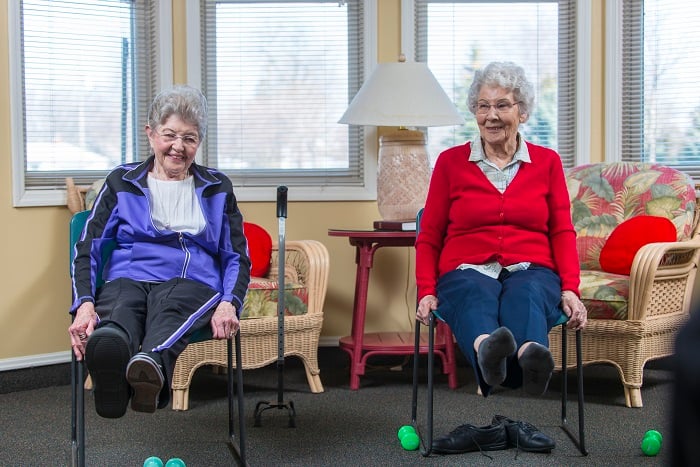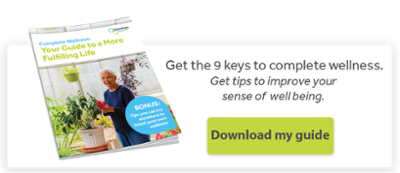By age 75, one in three men and one in two women do no physical activity, according to the CDC.
There are a few reasons for this decline: Deteriorating health, uncertainty about what exercises to do, or lack of social support and encouragement to get started could be a few reasons.
Read on to learn how exercise and hydration can affect your health as you age. You'll also get tips on how to stay active and reap the benefits at any age.
Limited Exercise Can Negatively Affect Your Health
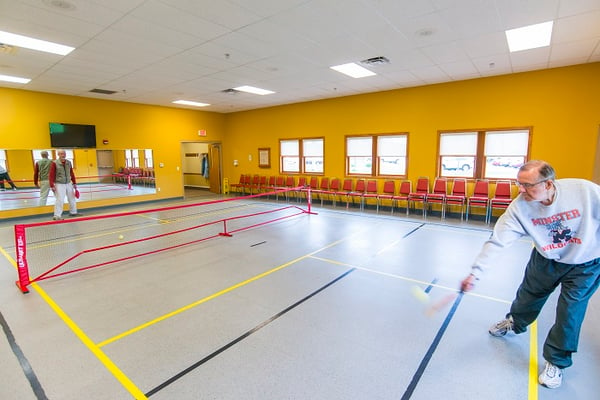
Decreased or no physical activity can have a negative effect on your health, such as:
- Greater chance of falls
- Loss of independence
- Increased anxiety and depression
- High blood pressure
- Increased pain and loss of range of motion due to arthritis
- Increased chance of coronary artery disease and diabetes
- Loss of strength and bone mass
- Decreased mental capacity
- Increased recovery time for wounds and injuries to heal
The Department of Health and Human Services recommends that all adults - younger and older - get at least 150 minutes of moderate or at least 75 minutes of intense physical activity each week.
Exercise Can Improve Your Health
The good news is that you can start reaping the benefits of exercise at any age, even if you haven't done it in years. You can think about achieving the guidelines above in terms of physical activity for 30 minutes per day, three to five days per week.
“I’ve seen first-hand how seniors can improve their health and quality of life through exercise,” says Sheri Reid, Program Director at an Otterbein SeniorLife YMCA. “One of our residents just told us that since she has started exercising, her bone density test has shown significant improvement!”
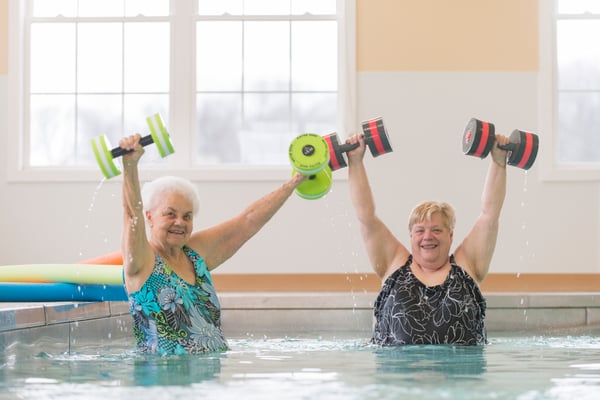
Ways to Start Getting Physical Activity
You don't need to go far to start working physical activity into your day. In fact, you don't even need to leave your home. Riding a stationary bike, doing basic bodyweight exercises like sit-ups and squats, or following along with a workout video are all ways to start getting active.
Getting exercise with a family member or friend is a great way to stick to your goals and enjoy socialization. You might go for a walk, attend a fitness class, or go golfing with a buddy.
If you're concerned about causing an injury with physical activity, the Dept. of Health and Human Services offers these tips:
- Be confident that your risk of injury is very low - one study showed that only one injury occurred for every 1,000 hours of walking for exercise.
- Start with light activity, especially if you aren't used to exercising. It's OK to begin slowly and work your way up to more difficult forms of exercise.
- Choose an appropriate type of activity for you. Intense and high-contact sports, for example, probably aren't the best place to start.
Use common sense as you plan your activities, but don't be afraid to try something new - the guidelines also say a variety of activities is a good way to meet your activity requirements. For example, adults should incorporate muscle-strengthening activities into their workouts at least twice a week.
Don't Forget Good Hydration and Nutrition
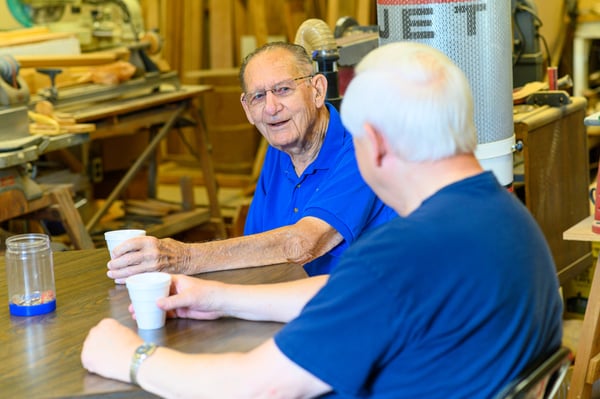
While you increase your physical activity, it's important to drink an appropriate amount of water. As we age, we have less water to lose before becoming dehydrated.
Seniors, on average, should drink six to eight glasses of water each day -- more if you consume a lot of caffeine. If drinking a lot of water doesn't appeal to you or fills you up too much, keep in mind that you don't have to drink it all at once. Instead, take sips throughout the day.
Staying hydrated can help:
- Keep constipation at bay
- Reduce your risk of urinary tract infections, respiratory infections, and kidney stones
- Decrease your chances of falls
- Keep you from feeling sluggish or "foggy"
Remember that sipping on 100% fruit juice, milk, clear broth, herbal tea, and other healthy liquids counts toward your requirements, so drink up!
Nutrition Tips for Seniors
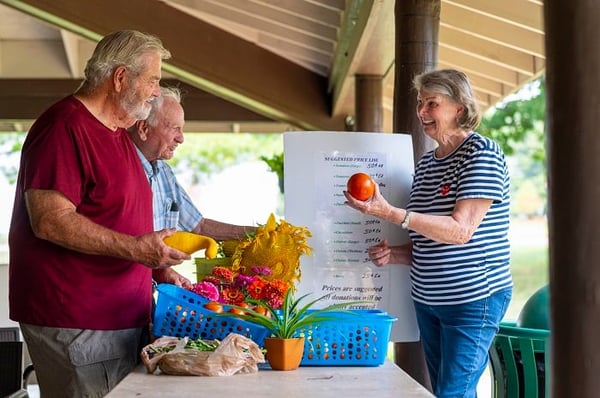
As you start to exercise more, you may find that you have an increased appetite. Nourish your body with healthful foods and give it the nutrition it needs.
Choose options that are dense in nutrients without being high in calories. Medline Plus suggests the following to help you build a healthy diet.
- A variety of colorful fruits and vegetables
- Whole grains, like oats, whole-wheat bread, and brown rice
- Fat-free or low-fat dairy products like milk, cheese, and yogurt
- Lean meats, eggs, and seafood
- Beans, nuts, and seeds
Don't be afraid to snack throughout the day if you're hungry. Just reach for smart options as you do so. Some examples could include:
- Low-fat cottage cheese with fresh blueberries
- A slice of whole-wheat bread with natural peanut butter
- Sliced almonds and an fresh apple
Another area to watch besides calories is sodium. Older adults should have no more than 1,500 milligrams each day - about 3/4 of a teaspoon. Instead of salting food heavily, add flavor with herbs and spices.
Learn More About Wellness
Taking care of your body is an important part of keeping your whole self well. At Otterbein, we help residents nourish nine dimensions of wellness that include:
- Physical
- Creative
- Environmental
- Cultural
- Vocational
- Emotional
- Intellectual
- Social
- Spiritual
Learn more about each dimension and get tips for improving your wellness today with this free guide. Just click the image below to download your copy.


